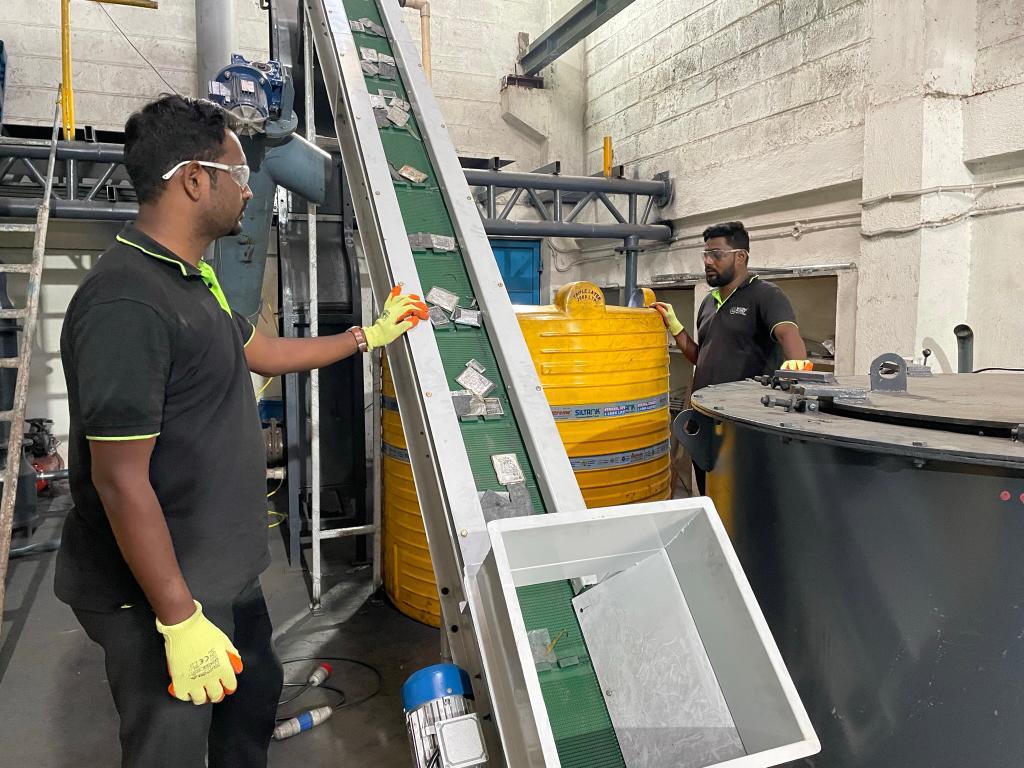Fueled by government initiatives and growing environmental concerns, the adoption of EVs is rapidly transforming India’s transportation landscape. However, this burgeoning sector presents a new challenge: the responsible management of Lithium-ion (Li-ion) batteries that power these vehicles. As the use of Li-ion batteries explodes, India has a unique opportunity to establish itself as a leader in the sustainable and responsible recycling of these critical components.
JMK Research estimates that India’s Li-ion battery market will reach a staggering 132 GWh by 2030, translating to a potential $1 billion opportunity in the battery recycling sector. This growth is driven by the government’s push for electric mobility, with ambitious targets like the National Electric Mobility Mission Plan 2020.
A robust Li-ion battery recycling industry is essential to ensure the long-term sustainability of this sector. Li-ion batteries contain valuable materials like lithium, cobalt, and nickel, which can be recovered and reused in new batteries. Effective recycling reduces reliance on virgin resources, minimises environmental impact, and fosters a circular economy for Li-ion batteries.
The Indian government is taking proactive steps to establish a Li-ion battery recycling ecosystem. The Ministry of Power released the Battery Waste Management Rules in August 2022. This policy enforces Extended Producer Responsibility (EPR), making manufacturers accountable for battery collection and recycling.
Additionally, NITI Aayog collaborated with the UK government to create a roadmap for the battery reuse and recycling market. This roadmap outlines key strategies for developing a sustainable recycling ecosystem, including establishing collection centres, promoting technological advancements, and fostering collaboration between stakeholders. These initiatives highlight India’s commitment to building a circular economy for Li-ion batteries and mitigating the environmental impact of the EV revolution.
Opportunities for sustainable practices
Despite the challenges, India has the opportunity to establish a leadership position in sustainable Li-ion battery recycling by focusing on the following:
- Promoting innovation: Encouraging research and development in indigenous battery recycling technologies will reduce dependence on foreign know-how and ensure environmentally sound processes. Government funding and collaboration with research institutions can accelerate the development of innovative and efficient recycling methods.
- Formalizing collection systems: Establishing a nationwide network for collecting used batteries from consumers and EV manufacturers is crucial. This system should be efficient, transparent, and incentivize responsible battery disposal. Partnering with existing waste management companies and leveraging digital technologies can streamline the collection process and improve traceability.
- Building a local supply chain: Developing a domestic market for recycled battery materials will create a closed-loop system, reducing dependence on global markets and ensuring long-term sustainability. This requires collaboration between recyclers, battery manufacturers, and other stakeholders to establish quality standards and ensure the viability of recycled materials for use in new batteries. Government policies that incentivize the use of recycled materials in battery production can play a critical role in this process.
- Skilling the workforce: The Li-ion battery recycling industry requires a skilled workforce with expertise in handling hazardous materials, operating recycling technologies, and ensuring safety protocols. Developing training programs and certification courses can ensure a skilled workforce that can support the growth of this sector.
The views and opinions expressed in this article are the author’s own, and do not necessarily reflect those held by pv magazine.
This content is protected by copyright and may not be reused. If you want to cooperate with us and would like to reuse some of our content, please contact: editors@pv-magazine.com.








Insightful writeup
We are interested in Lithium batteries recycle / extraction. In India. Please if you can share articles on the subject. Like the best cost efficient method/ process to extract lithium & other components. Mechanical/ Chemical process.
hello,Henan DOING, as a professional manufacturer of waste recycling machinery, can provide one-stop service at a relatively favorable price. Our solar panel recycling machine adopts advanced disassembly, crushing and separation technology, which can efficiently recycle discarded solar panels and obtain aluminum frames, glass particles, silicon, copper and plastic powder, all of which can bring us considerable profits.
Our manufacturing factory convers an area of 40000+㎡, all customers are welcome to visit and test machine with the materials. Besides, we have the branch office and overseas warehouse and are building fabrication factory in Nigeria, Africa(19B Kudirat Abiola Way Olusosun Bus stop, Ikeja, Lagos, Nigeria), to provide customers convenience of picking up machines from warehouse directly more conveniently.
If you are interested in solar panel recycling business and require further information, please do not hesitate to reach out to us.
Email: market@doinggroup.com
WhatsApp/Wechat/Phone: +86 150 3713 8562
Office Website: